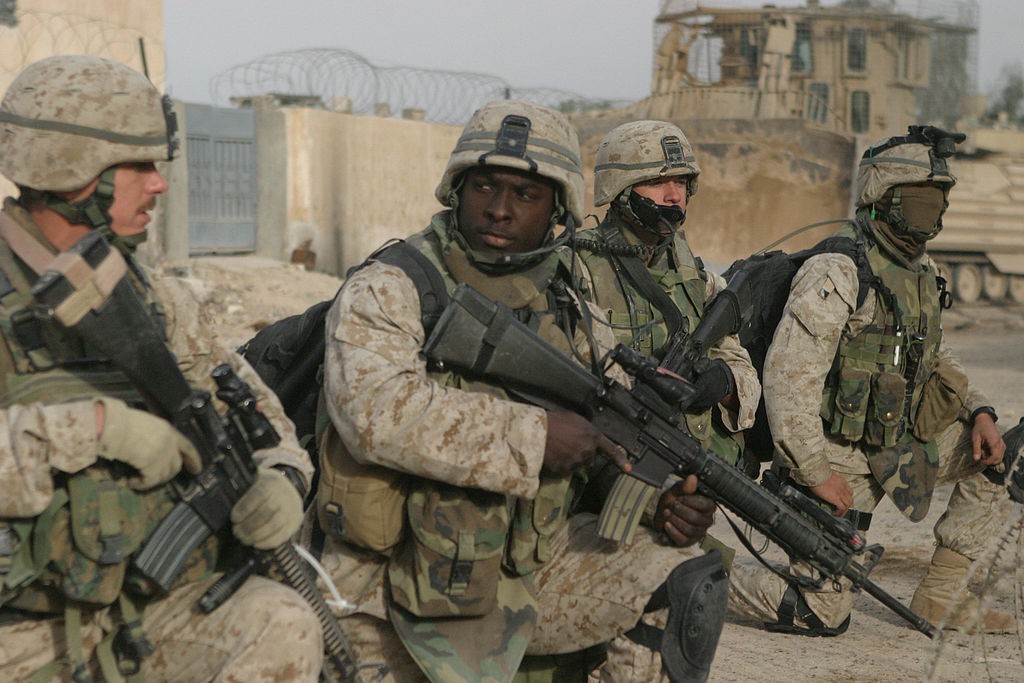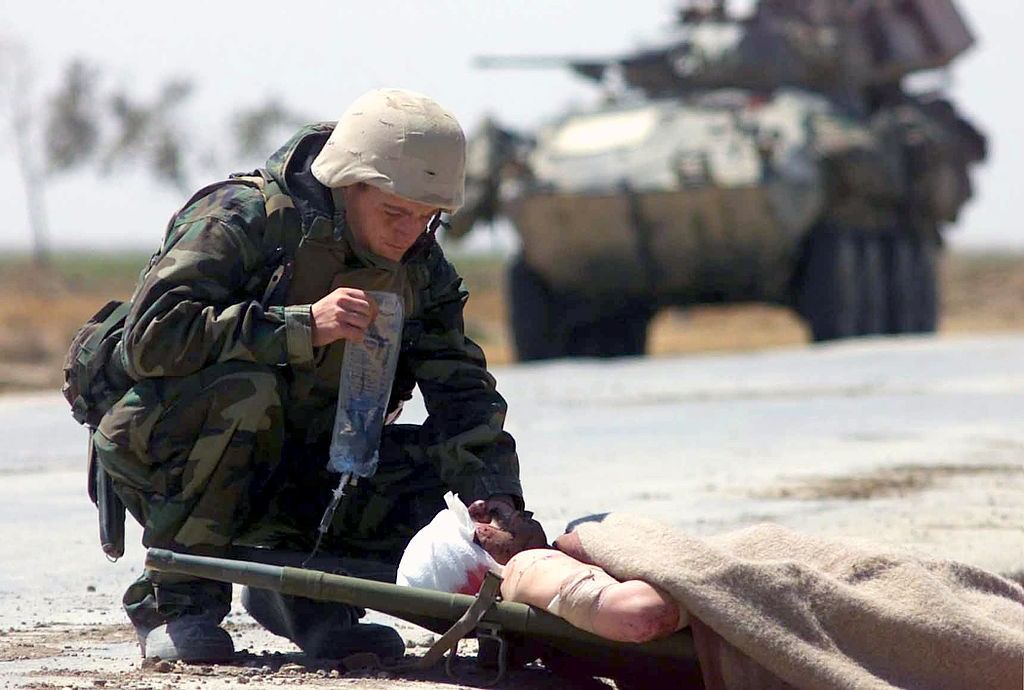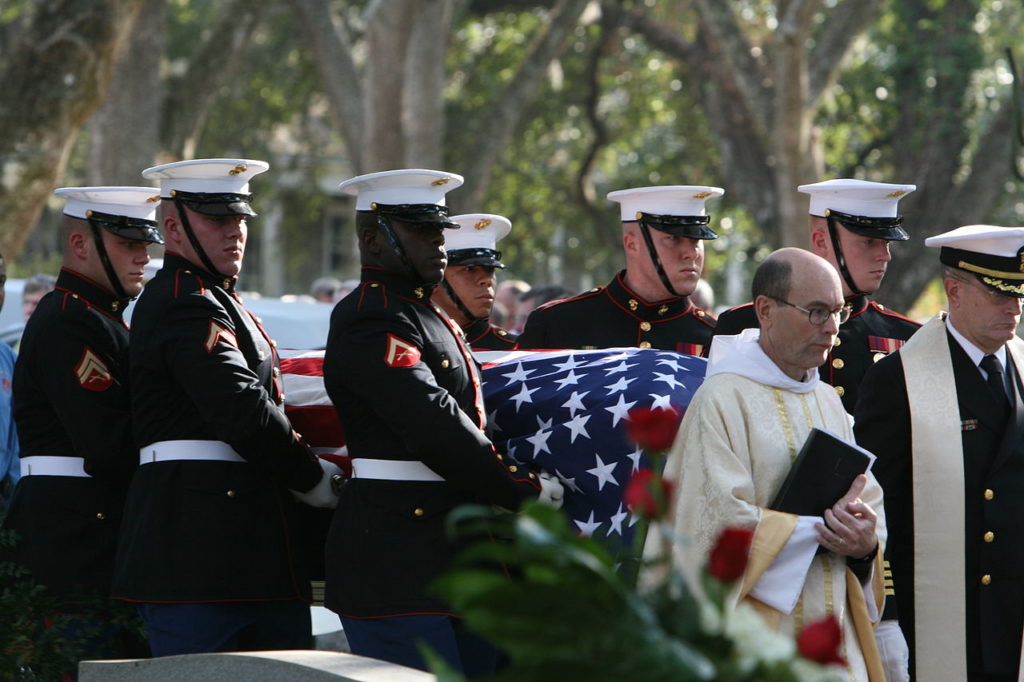
Protesters are burning and trampling upon the American flag again. When veterans counter-protest against this behavior, some people suggest that they should not protest saying soldiers die so that others might have the freedom to burn the flag in the public square.
This “soldiers-die-so-protesters-can-burn-flags” slogan has become a mantra repeated everywhere. Many people find a bizarre beauty in this tragic contradiction. They understand neither freedom nor flag.
Flag burning is wrong, purely and simply. Deep down everyone knows it but many are afraid to admit it. However, they should at least realize that they insult the soldier when saying he dies so that others can burn the flag.
Such conclusions used to be obvious in times when objective standards of right and wrong were universally recognized. Prohibiting flag burning was enshrined in law for decades without any threat to the freedom of citizens. Moreover, such a prohibition is, even now, supported by many common-sense Americans who wish to see the flag defended by a constitutional amendment.
But this is not obvious to others in these times of moral relativism. Such people follow the worn-out liberal dogma that confuses freedom and license. They define freedom as doing anything one wants to do as long as it does not hurt others. This is to misunderstand natural liberty. This liberal way of thinking turns “freedom” into a means of justifying the practice of vice, gratifying passions or dividing the nation. This kind of “freedom” resents authority, order and restraint of all types. Inside this definition, they invent the “freedom” to burn the flag.
Of course, this idea of freedom is contrary to the classical notion of “ordered liberty” that has always associated freedom with virtue and self-restraint. Those who exercise self-control over their passions become free to pursue so many other goals. On the contrary, those who give in to their passions are enslaved by them.
Thus, the true nature of freedom is the faculty of choosing the means toward an end that is perceived as good. The choosing of an evil reflects a defect of judgment not a proof of freedom’s proper functioning.
What Does Saint Thomas Say About Immigration?
This distinction of freedom is particularly true of the soldier. The soldier does not fight forthe “right” to do whatever. His fight is oriented toward the defense of order.

His moral universe makes a clear distinction between right and wrong because his life depends upon it. He puts force at the service of the good and directs his action against the forces of evil. The soldier does not give his life to defend disorder. Rather his fight implies a rule of law that limits the activities of people so that order might exist in society and true freedom might flourish.
To suggest that a soldier might die so that others can have the freedom to do something wrong goes against everything the soldier stands for. Thus, the soldier does not fight, for example, so that others might have the “freedom” to have abortions. Likewise, those who think soldiers die to defend flag-burning misunderstand freedom’s true nature.

They also do not understand the flag.
The flag is not just a piece of cloth. In these times of extreme individualism, many want to hijack the flag and turn it into a symbol of a person’s right to pursue happiness without any social commitments.
But that is not the flag’s meaning. The flag is a visible symbol that invites individuals to think beyond their self-interest. It represents a moral commitment to the common good of the collective entity called America.
The visible flag represents the invisible bonds that link Americans together as a people. It expresses those common ties that unite Americans past, present and future.
Indeed, the flag belongs to no political party, social class or special interest lobby. It belongs to everyone and rises above the petty intrigues and politics of the day. The flag honors a collective vision of what America was, is, and might be. It is the celebration of what is called the unitas ordinis, that unity of order that makes up America. It is a symbol of the commitment made by all Americans to be a member of the nation.

That is why the soldier fights for the flag and is buried with one draped atop his coffin. It is symbolic of his giving of his entire self to the common good of the nation. The union from this selfless giving is so great that flag and soldier almost form a single whole. Attacking and burning the flag is like attacking the soldier.
Thus, when protesters burn the flag, they are burning the symbol of this moral commitment to be part of society, the very commitment needed if solutions are to be found for the problems afflicting the nation.
When protesters burn the flag in the public square, they are not just burning a material piece of cloth, but rather a symbol that does not belong entirely to them. The flag belongs to all Americans. Flag-burning is wrong because they are destroying something that belongs to others and have no right to deface.
It is natural that people take measures to stop the destruction of something that belongs to them. That is why veterans gather to defend the flag they fought for. As members and soldiers of the nation, the flag is also theirs. Such an act of injustice is an injustice against them as well.
That is also why flag-burning has always been banned. Public flag-burning is an anti-social act, a provocation to violence, a disturbance of the peace and a suicidal denial of national identity.
In such cases, the nation has always had the right of self-defense. If corporations can defend their trademarks against infringing abuse, how much more reasonable it is for Americans to protect their flag from desecration.
These considerations are not politically correct. They probably will not convince those who believe freedom includes the right of self-destruction. But in these times of moral relativism, they need to be said and re-iterated. Soldiers do not die so that others might do wrong. Freedom is not license. The flag belongs to all Americans. Flag-burning is wrong.


